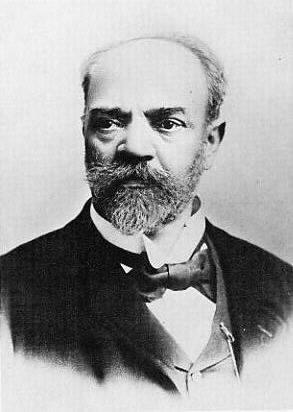|
Makers
Violin History & Timeline
PERFORMERS
Violin
Viola
Cello
Bass
Gamba, etc.
The Roots of Famous Violinists
TEACHERS
Violin
Viola
Cello
Bass
DEALERS
Listings
Specialist
Event
LUTHERIE
Bibliography
Listings
Gallery
COLLECTING
Identification
Buying
Selling
THE INSTRUMENTS
Violin
Viola
Cello
Bass
Viol
Bows
Tales
LINKS
Interesting Sites
GALLERY
Antique Instruments
Historical Photos
|
|
 Dvorak’s
Bohemian roots fostered his love For music. Born on September 8, 1841.
Dvorak was continually encouraged to appreciate and participate
in musical activities. His father, an
innkeeper, played the violin and zither, and emphasized the
importance of music. At a young age, Dvorak began entertaining his
father’s clients with violin performances. He was continually
preoccupied with music, and would spend hours listening to town members
singing Bohemian melodies. Dvorak’s
Bohemian roots fostered his love For music. Born on September 8, 1841.
Dvorak was continually encouraged to appreciate and participate
in musical activities. His father, an
innkeeper, played the violin and zither, and emphasized the
importance of music. At a young age, Dvorak began entertaining his
father’s clients with violin performances. He was continually
preoccupied with music, and would spend hours listening to town members
singing Bohemian melodies.
Father Dvorak decided that his son should be an
innkeeper, and sent the boy to a nearby town in order to learn German.
Living with his uncle in the small
town of Zlonice, Dvorak found a devoted music teacher, Antonin Liehmanm.
Under Liehmanm’s direction, he studied the viola, piano, and organ.
Liehmanm was determined that Dvorak should enter the Organ School in
Prague; however, his father was opposed. After much convincing, Dvorak’s
uncle agreed to fund the boy’s musical education. in his later years,
Dvorak fondly remembered Liehinanm, the inspiring teacher who promoted
his education, and wrote an opera, The Jacobin,
in his memory.
Dvorak studied at the Organ School for almost ten
years. He worked hard, and composed occasionally. Once the funds for his
education ran out, Dvorak found a position in the orchestra of
the National Opera. He barely earned enough money to purchase food, and
often found himself cold and hungry. A decade latex, Dvorak 1cR his
From then on, his primary focus became
composing
In his initial compositions, Dvorak overemphasized
and imitated the styles of his idols, Wagner, Beethoven, Mozart, and
Liszt However, once he abandoned the German models of music, and infused
Bohemian melodies into his pieces, Dvorak’s works won tremendous
acclaim. Dvorak was awarded the Austrian State Stipendium on three was a
member on the committee that awarded the Austrian State Stipendium.
Greatly impressed with Dvorak’s compositions. Brahms became Dvorak’s
devoted friend, and went to great lengths to further his career. Brahms
encouraged the famous publisher, Simrock, to promote Dvorak’s works.
Simrock commissioned the writing of Slavonic Dances, compositions that brought
Dvorak acclaim throughout Europe Dvorak produced many operas and
symphonies, and soon was internationally known. He was granted an
honorary doctorate degree from Cambridge,
and in 1891 he began teaching at the Prague Conservatory.
In 1892 Dvorak assumed a post as the director of the
National Conservatory in New York. He thoroughly enjoyed living in the
United States, and was greatly influenced melodies into his
classical works, creating an unprecedented effect. The famous Ninth
Symphony, also known as the New World Symphony, sprang from his love for
American folk music. Dvorak returned to his homeland for the last ten
years of his life, and became the director of the Prague Conservatory.
He suffered from Bright’s disease, and died shortly after the failure
of his last opera. This noteworthy individual daringly blended the
sounds of American, Bohemian, and German music, an produce pieces that
have continued to unify people throughout
the world.
Notes by Shanaira Udwadia (May-2001) |